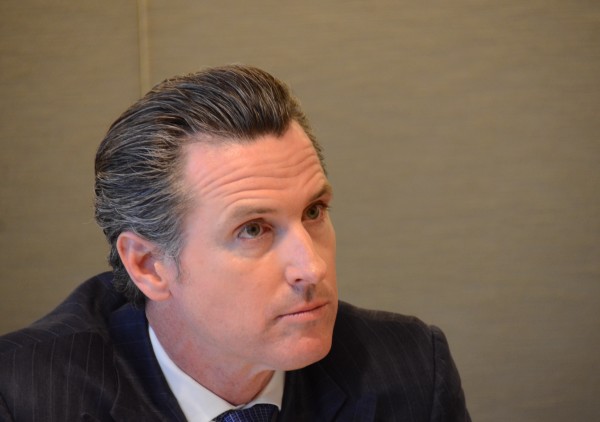Governor Gavin Newsom’s 2021 budget proposes shifting money from environmental equity programs to fire prevention, a move that has angered advocates.
As Greenlining Institute, CEO Debra Gore-Mann said, “Funding for wildfires should come from the utilities whose recklessness led to so many problems, so that we can maximize funds needed to fight pollution and build resilience in low-income communities of color.”

Each year California sets a new reduced limit or “cap” on statewide emissions that state will allow to be produced, with each allowance making up one metric ton of carbon dioxide equivalent emissions (using the 100-year global warming potential). These allowances are then auctioned off to garner funds for various California Climate Investment Programs. In short as the California Air Resources Board writes, “It complements other measures to ensure that California cost-effectively meets its goals for GHG (greenhouse gas) emissions reductions.”
But as Gore-Mann and Environmental Equity Director Alvaro Sanchez pointed out, Newsom’s proposed state budget lets utilities, such as PG&E, off the hook for funding wildfire prevention and recovery from wildfires, and puts the burden on the state. That means that equity-designed programs don’t get the funding they need to continue functioning — ultimately disproportionately affecting low-income communities and communities of color.
“The governor’s budget and the governor himself will often speak about equity and a California for all,” noted Shanchez, but “the programs that have the most equity design to them don’t seem to be getting the resources and funding.”
He specifically pointed to programs such as Transformative Climate Communities and the Regional Climate Collaboratives which were created by SB 1072 — a bill that created a national model for prioritizing investments in “communities most impacted by pollution and poverty and most vulnerable to the effects of climate change.” It attempts to address the challenges as well as the already existing community action groups that exist within these communities as it attempts to address the issues of climate change.
Programs like the AB 617 or the Community Air Protection Program, which was signed into action by Governor Jerry Brown in 2017 and focuses on reducing exposure in communities most impacted by air pollution, are also put at risk by budget cuts.
“The problem is many communities don’t have the necessities to pursue grants that would help them,” Sanchez said. “The impact (of the loss of climate program funding) is seen in those communities but could be unseen by everybody else.”
That means residents of cities like San Francisco, who have the infrastructure and resources already in place, will see less of the effects of climate change and air pollution directly, while other communities with less resources and infrastructure won’t be so lucky.
The word “equity” is being thrown around to make the state and governor look better but not followed through to help the communities who need it most.
Newsom’s proposed 2021-2022 budget, in its Climate Change Action portion “proposes an additional $1 billion to support a coordinated forest health and fire prevention strategy that maximizes technology and science-based approaches to protect state forestlands.” There’s also “$323 million for early action in the spring to start these forest health and fire prevention projects before the next fire season.”
It “proposes a $1.5 billion comprehensive strategy to achieve the state’s zero-emission vehicle goals by 2035 and 2045.” While it’s focused on larger scale actions to help mitigate climate change within the state, it underfunds programs in frontline communities.
Sanchez noted that, “As we recover from the COVID crisis and the economic crisis, we need to address overall inequities.” During 2020, many Californians were forced to go into poverty or further into poverty due to a lack of jobs and federal funding for unemployment benefits, while large corporations and business owners were able to profit off of the pandemic because of federal funding and tax breaks. The same communities who were disproportionately affected by COVID and consequent economic crises are the same communities that will feel the effects of climate change and air pollution more directly.
But for real change to happen, Sanchez said a few things need to be addressed directly. The first is a reform of how the cap-and-trade funds are distributed, as well as revisiting the program design as a whole.
The program seeks to do environmental good, but the state has a responsibility “to make sure frontline communities aren’t being overly impacted,” Sanchez said.
And the state needs to address whether these communities can get the necessary funding for programs aimed at curbing the effects of climate change, and whether we “can get equity more right, past just clean air.”
He said the state needs to hold utilities and other large corporations accountable for reinvesting in communities that are disproportionately impacted by climate change.
Following the Nov. 2018 Camp Fire, the Oct. 2019 Kincade Fire, and the orange skies and record breaking heatwaves of Aug. and Sept. 2020 — Newsom and California lawmakers need to address the key issues surrounding the effects of climate change and statewide socioeconomic inequity now before fire season has the opportunity to further devastate those hardest hit by the COVID economic crisis.




